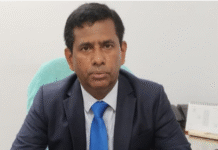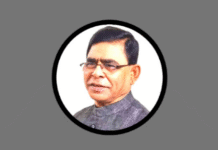1,700 tonnes of solid waste left uncollected every day in Dhaka city; DCC's poor monitoring and lack of capacity blamed
Hundreds of tonnes of waste that lies uncollected on the capital's streets every day in absence of proper waste management programme exposes the city dwellers to greater health risks and environmental hazards.
Around 1,700 tonnes of solid waste remains uncollected every day due to poor monitoring and logistic supports and negligence of the field-level corporation workers, officials of Dhaka north and south city corporations said.
Though around 100 new garbage vehicles, including 35 trash compactors and arm-roll containers were added to the waste management wings of the city corporations in the last two years, efficient waste management still remains a far cry.
Piles of uncollected waste being dumped into the rivers and low lying areas or left on the roadsides, not only blocking the city's drainage links but also creating an unhealthy and stinking environment.
The city dwellers are also found lacking the knowledge of waste management as some of them do not dump their household trash in the designated bins rather leave those in drains, the officials added.
Abu Naser Khan, chairman of Bangladesh Paribesh Bachao Andolon, said most of the medical waste from hospitals and clinics in the city remains uncollected and gets mixed up with the household waste.
“This assorted waste, putrefied in the open, can trigger the spread of various harmful diseases such as hepatitis, HIV, dysentery, diarrhoea, malaria, scabies, skin ailments,” he said.
The rubbish dumps also create a toxic liquid substance called leach, which may trigger underground water pollution, he added.
According to a city corporation official, some 2,200 tonnes of household garbage is being generated in the Dhaka North City Corporation areas while 2,006 tonnes at Dhaka South City Corporation areas daily.
But the city corporations only manage to collect daily around 1,350 tonnes of waste from Dhaka north and 1,200 tonnes from Dhaka south thanks to their poor logistics and sluggish workforce.
One of the pressing problems in the daily waste management is the undue influence of the trade unions of sweepers and drivers. Almost 30 percent of 8,000 street sweepers do not do their daily duties. But they are getting paid full salary every month, said the official preferring not to be named.
At least 30 drivers of the waste management wing have the liberty of not reporting to their workplaces on the ground that they are trade union leaders and members. But they are getting paid full salary every month.
Questioned why the authorities do not take administrative action against these drivers and sweepers, the official added that they are helpless because the sweeper and driver unions are very influential.
Talking to The Daily Star, Abdul Latif, member secretary of Scavenger and Workers' Union of Dhaka City Corporation, denied the allegation saying “Around 3 to 4 percent sweepers might remain absent daily.”
“As we cannot enjoy two days' weekly holiday like other employees of the city corporation, we perform our jobs maintaining a duty roster,” he added.
The city corporations' waste management programmes are virtually non-existent in the capital's major kitchen markets along the rivers Turag and Buriganga.
During visits to Badamtali fruit market, Gabtali kitchen market near the Beribandh and Islampur wholesale market, this correspondent found waste left on roads to rot in the open.
Bipon Kumar Saha, chief waste management officer of Dhaka North City Corporation, said they were trying to attract long term investments in the waste management sector to handle the garbage properly.
“We are expecting big companies to come forward,” Saha said.
“The city's garbage is a huge resource in many countries. You can convert waste into environment friendly compost, bio-gas, bio-fuel and other by-products,” he added.
Md Anamul Haque, chief waste management officer of Dhaka South City Corporation, said they were trying to bring different kitchen markets under a system for effective disposal of waste.
Sufi Iqbal Ahmed, managing director of Bangladesh Clean Technology Ltd, claimed that as long as the slum areas remain out of the purview of garbage collection system, waste management is unlikely to yield the expected result.
His firm has been handling waste in Uttara since 2004 after being awarded the work by the Dhaka City Corporation — now split into north and south.
Source:The Daily Star









